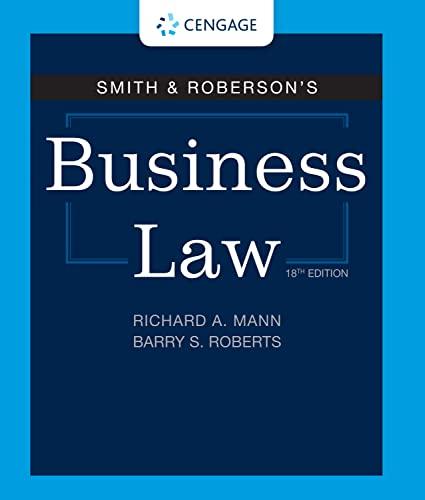Answered step by step
Verified Expert Solution
Question
1 Approved Answer
Background On March 29, 2019, the Quebec government enacted the Act respecting the laicity of the State, CQLR c L-0.3 [ Bill 21 ]. Quebec's
Background
- On March 29, 2019, the Quebec government enacted theAct respecting the laicity of the State, CQLR c L-0.3["Bill 21"].
- Quebec's Bill 21 affirms that Qubec is "a lay State" (s. 1), and reaffirms the laicity of the State based on the four following foundational principles (s. 2):
- The separation of State and religions;
- The religious neutrality of the State;
- The equality of all citizens; and
- Freedom of conscience and freedom of religion.
- Section 6 of Bill 21 mandates, under the principle of secular public services, that certain government employees (including school teachers, police, Crown prosecutors and judges) do not wear religious symbols at work.
- Section 34 of Bill 21 provides that the Act is enforceable notwithstanding sections 2 and 7 to 15 of the Canadian Charter of Rights and Freedoms [the "Charter"].
The legal challenge
- Bill 21 is currently being legally challenged.
- In Hak c. Procureure gnrale du Qubec, 2019 QCCA 2145 [Hak], the Quebec Court of Appeal mentions the use of the notwithstanding clause:
"Since the discriminatory effect of theAct is obvious, the legislature included the so-called "notwithstanding" clause, namely,section 34 of theAct, which expressly states that its provisions will have effect regardless ofsections 2 and7 to 15 of theCanadian Charter. It should be noted thatsection 33 of theCanadian Charter, which allows such a derogation, does not refer to section 28 of saidCharter, a matter that will be discussed below." [para 9]
Your task
- Time has quickly passed and the Hak case is now about to be heard by the Supreme Court of Canada.
- You are invited by the Court to act as an amicus curiae on this case.
- Specifically, the Court wants to understand how the principle of parliamentary sovereignty interacts with the principle of constitutional supremacy where a government invokes the notwithstanding clause. Are they in contradiction? If yes, can they be reconciled? What are the dangers of the notwithstanding clause regarding our rights and freedoms? Is there any other section of the charter that could be used to challenge Bill 21? A brief factum to support the argument.
Step by Step Solution
There are 3 Steps involved in it
Step: 1

Get Instant Access to Expert-Tailored Solutions
See step-by-step solutions with expert insights and AI powered tools for academic success
Step: 2

Step: 3

Ace Your Homework with AI
Get the answers you need in no time with our AI-driven, step-by-step assistance
Get Started


